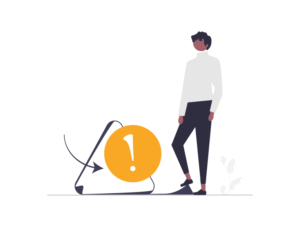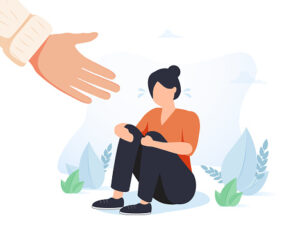Risk Management
-
Introduction to Risk ManagementWhat is Risk Management?
-
Importance of Risk Management
-
How Do I Set a Goal?
-
Reflection Activity: What I Want and What is Important to Me
-
High-Risk SituationsWhat Can Lead to My Increased Risk
-
What Else Can Increase My Risk
-
Activity: What Are My Triggers
-
Activity: What Else Increases Risk?
-
Summary
-
CrisisWhat Is a Crisis?
-
What Are 5 Things I Can Do During a Crisis?
-
What Types of Support are Available and How Can I Access it?
-
Crisis Plan Worksheet
-
Development and GrowthWhat's Emotion Got To Do With It?
-
Activity: Self-Reflection
-
Summary: Emotions
-
What's Thoughts Got To Do With It?
-
What If I'm Craving To Use?
-
Activity: Coping Strategies
-
Summary: Thoughts
-
AnchorsWhat is Recovery?
-
What are Some Anchors of Recovery?
-
Activity: Substance Use Demotivators and Motivators + Pros and Cons of Recovery
What Are 5 Things I Can Do During a Crisis?
1. Recognize your warning signs
It’s important to be able to recognize how you feel, think, or behave right before a crisis; this is called your triggers or warning signs. By doing so, you can be more aware of the oncoming relapse, helping to reduce the risk of it.

Examples of warning signs:
- Anxiety
- Hopelessness
- Anger
- Recklessness
- Mood change
- Feeling trapped
2. Use your strategies/ distraction techniques to overcome a relapse
A good approach to help you overcome a lapse is to try and distract yourself. Think about what you can do instead of using drugs or alcohol. Remember that cravings will always pass. Try to do any activity that can help you shift your focus.

Some distraction examples include:
- Exercising
- Journaling
- Watching television
- Reading a book
3. Recognize when you need help from others

Sometimes it gets tough to handle incoming risks on your own. If this is the case, it’s important to reach out to others that can help you.
4. Reach out to family/friends for support
Contacting family, friends, and other supportive people in your life can be very helpful when it comes to overcoming your risks. It’s a good idea to have a list ready of people you can call when you experience cravings, as well as to voice the help you would like from them. Sometimes, even a chat on the phone with a loved one can be helpful.
You can put this information in your crisis plan in the activity at the end of this lesson.
5. Reach out for professional help.
More information on professional help can be found in the next two subsections.
